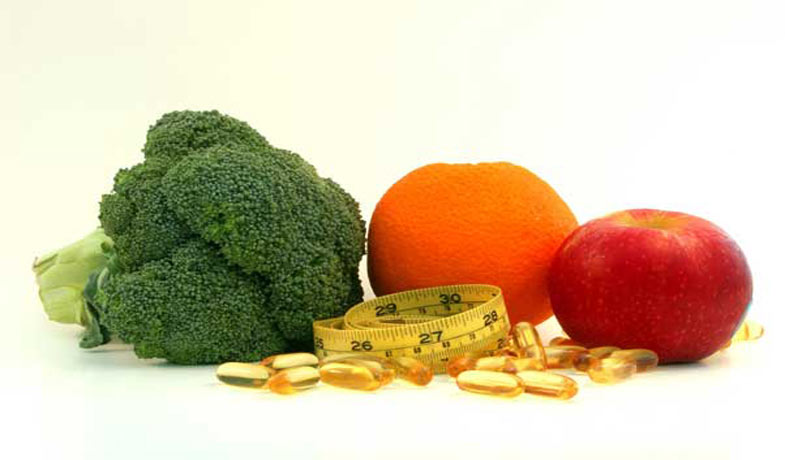It describes a narrowing and damage to the blood vessels, which ultimately leads to a lack of blood supply to important vessels and organs.
In addition to high blood pressure, diabetes mellitus and poor nutrition, the most important risk factor for the development of arteriosclerosis is an excessively high concentration of cholesterol. Blood lipid levels and body weight seem to be subject to seasonal fluctuations, with falling temperature both blood cholesterol levels and the body mass index rise. Accordingly, the cholesterol level in the blood rises to peak values in winter. Less exercise and sumptuous meals – typical for the cold season – exacerbate the situation.
Cholesterol is present everywhere in the body, in the brain, liver, heart, bones and blood. The body needs cholesterol primarily as a building block for cell membranes and nerve fibres, as a starting material for the formation of messenger substances (hormones), as a basis for bile acids (fat digestion) and for the production of vitamin D. Since the body produces enough cholesterol itself, depending on your lifestyle, more remains or less cholesterol unused. The excess cholesterol remains in the blood and is deposited in the vessel walls. So-called arteriosclerotic plaques develop, which lead to narrowing and hardening of the blood vessels. Since vascular calcification can significantly disrupt the supply of the effector organs, secondary diseases such as heart attacks, strokes, kidney damage and peripheral arterial occlusive disease (intermittent claudication) occur more frequently.
A high-fat diet, lack of exercise, genetic factors and disorders of lipid metabolism are the main causes of increased cholesterol levels. In order to lower this and thus reduce the risk of arteriosclerosis, most of those affected have to change some lifestyle habits. Any therapy should begin with this.
Cholesterol is mainly found in animal foods, such as meat, high-fat milk, egg yolk, bacon, sausages, lard, butter and cream. A high-fiber diet with vegetables, fruit, bread, cereals, potatoes, fish and legumes, generally plant-based foods, is particularly recommended. The preparation of the food also has an influence on the fat balance. Grilling, cooking and baking are better than frying pan or deep fryer. The general rule is to use as little fat as possible, or better yet, use olive or sunflower oil. Replacing saturated fatty acids with unsaturated fatty acids can also reduce cholesterol levels.
Natural remedies can also help to lower high cholesterol. A natural remedy for high cholesterol comes from India. Plantago ovata, the Asian relative of a plant known in Europe as buckhorn. Their fruits are also called flea seeds, the shells of which contain water-soluble fiber that supports digestion, binds the cholesterol consumed in the intestine and thus lowers the cholesterol level. Certain ingredients in the artichoke can also influence the cholesterol level – through a double effect. First, the bad cholesterol, the LDL, is lowered while the good cholesterol, the HDL, is increased. Secondly, the regeneration of bile acid is stimulated in the liver. The flow of bile increases significantly, allowing the body to carry out its own cholesterol detoxification. Three to four apples a day also lower total cholesterol by up to 10 percent. Because: Apples contain the fiber pectin, which binds bile acid in the intestine, which consists mainly of cholesterol.
Regular exercise not only increases the HDL level in the blood, but also the consumption of body fat and thus reduces the personal risk of cardiovascular disease. Endurance sports such as walking, cycling and swimming in particular have a positive effect on fat burning and thus cholesterol levels.
Experience has shown that pathologically high cholesterol levels cannot be permanently reduced through food and exercise in order to reduce the risk of coronary heart disease. Especially if deposits have already formed in the vessels, it makes sense to stop the progression with medication. Drugs that aim to lower blood fat levels are commonly referred to as lipid-lowering drugs. These differ in different classes. By inhibiting the enzyme, statins are particularly effective at lowering the total concentration of cholesterol in the blood. They are considered an effective therapy for lowering lipids and can also prevent pathological changes in the blood vessels. In particular, fibrates lower triglyceride levels by reducing the production of fats in the liver. At the same time, they increase HDL so that more cholesterol can be absorbed, transported to the liver and broken down. Anion exchangers (bile acid exchange resins) are synthetic resin-based drugs that bind bile acid in the intestine and thus promote its elimination. As a result, the body has to produce more bile acid while using up cholesterol. Cholesterol absorption inhibitors are deposited in the mucous membrane of the small intestine and inhibit the absorption of cholesterol from food into the body. This lowers the LDL level in particular. Cholesterol synthesis inhibitors inhibit an enzyme involved in the production of LDL cholesterol in the liver. This lowers the LDL level as well as the triglycerides and the HDL level increases.
If medication does not help or only insufficiently, and especially if the cholesterol levels are above 400-500 mg/dl, in the worst case a dialysis-like procedure for blood filtering is used. However, this applies to very few exceptional cases.
High cholesterol levels are not announced by symptoms or current complaints. The health damage to the heart is therefore often underestimated or not even noticed. In many cases, heart disease can be avoided. The indispensable prerequisite for this, however, is sufficient information about signs of infarction and the course of the disease as well as regular examinations by your doctor.
Other topics related to health and medicine
